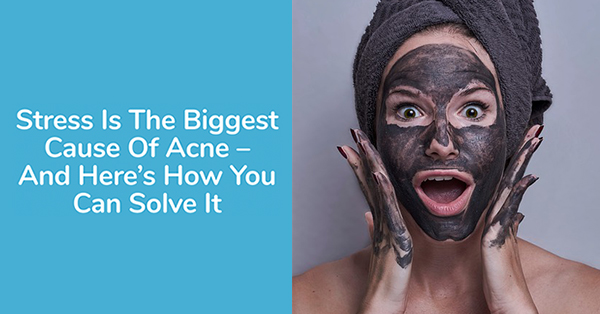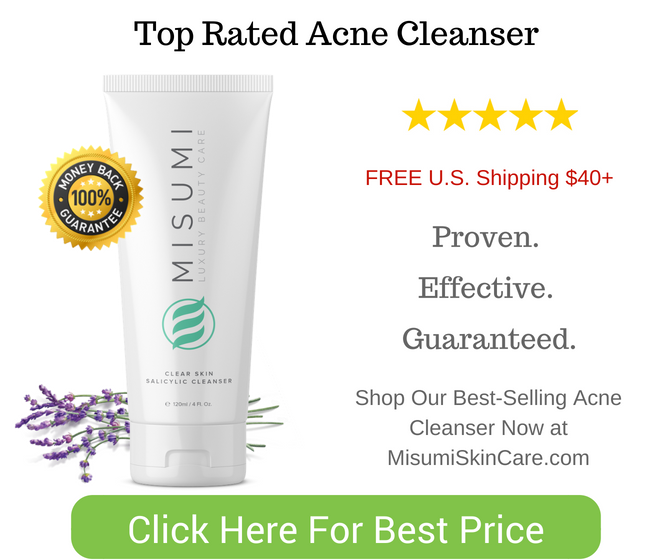Contents
The biggest cause of acne breakouts is stress. Our skin breaks out as a reaction to stress and often noticing a breakout can make your stress worse and we get stress acne.
Our skin naturally has its own specific sensitivities to stress that once tapped into can actually be used to prevent future stress-induced breakouts.
Key Factors of Stress Acne
Acne can be caused by stress which often creates even more emotional upset increasing the stress hormones and so the cycle of breakouts begins.
If you know you are going to be faced with a period or situation that involves emotional difficulty, then you can take precautions with your skin to prevent acne breakouts. Depending on what type you have may depend on whether you have mild acne or severe acne, it can affect you in different ways:
- If you have oily skin, stress acne causes breakouts as it kills cells.
- If you have dry skin, stress acne causes breakouts by irritating cells.
Taking note of your skin type, skin condition and any outside stressful aspects in your life can really help your treatment of acne. With this information, you can choose the best acne treatment products for you that can actually prevent dermatological stress and the blemishes that come with it. A skin care system like Exposed Skin Care can be an extremely effective way to prevent and treat acne.
If you experience acne, then you know that stress will make your breakouts worse. Medical scientists have also proved that chronic stress is an important factor in acne breakouts.
Research from dermatologists at Stanford University has proven
This research group recruited students who came into the univers
ity clinics for acne-related issues and made them go through two exams – one during a relatively stress-free week and one during finals.
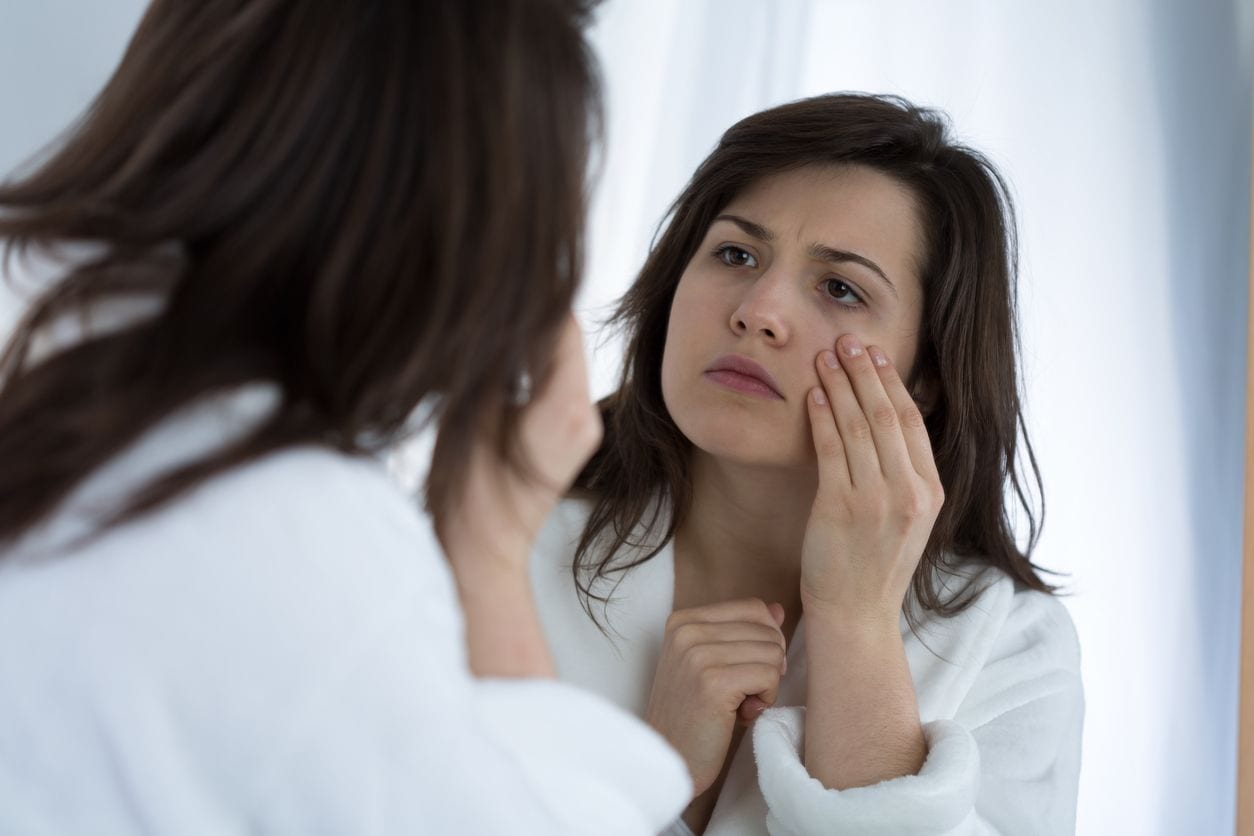
In order to measure their stress levels during this time the students were asked to
participate in questionnaires.
According to the researcher’s article in the Archives of Dermatology, their work found that “changes in acne severity correlate highly with increasing stress.”
But what exactly is the link between stress and acne?
A big part of the answer is the connection between stress and hormone production. These stress-induced hormones cause inflammation and trigger breakouts.
Stress hormones and acne breakouts
Another factor is that emotional stress interferes with the thyroid’s ability to produce hormones. A lack of thyroid hormones leaves the skin more vulnerable to inflammation and therefore can cause acne. You can control your body’s thyroid levels with various vitamins and minerals – vitamin A and medications like Retin-A actually raise the body’s thyroid hormone levels while healing the skin.
Being stressed also increases the production of sex-related hormones like testosterone, as well as luteinizing hormone and prolactin. Once these balance again the skin will clear up. This can help to prevent stress acne naturally but the change of hormone levels can cause hormonal acne, which is very common in adult females and often referred to as adult female acne.
Nonetheless, you don’t need to be an expert in endocrinology to know that stress causes acne.
If you suffer from stress acne and want to prevent any future breakouts then you need to be particularly diligent with your skin care routine and medication during stressful periods of your life.
Not only do we need to remain diligent in ourselves, but doctors need to also consider stress as a vital factor when prescribing treatments for acne-related issues.
Although stress cannot be completely eliminated from our lives, we can do more to prepare our skin for it. Stress acne can be caused by bodily stress and also stress that is localized in the skin.
Stress and Oily Skin
Oily skin can come with a range of acne issues, like whiteheads that won’t go away and large, uncomfortable blackheads.
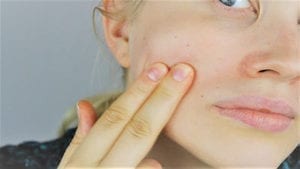
These acne blemishes often form due to stress-related issues, but not in the way you might think. This kind of stress does not come from finals week or pledging to a fraternity – it is much more skin-specific.
The pores in oily skin tend to clog easily due to a combination of sebum and dead skin cells. Oily skin naturally produces high levels of sebaceous oil and due to the larger pores of this skin type, this oil can easily flow to the surface and cause breakouts.
Problems in oily skin come when these cells and more oil block the openings of the skin.
The combination of both of these is often too much for our skin to handle, which is why people with this skin type often experience more acne breakouts. These elements harden on the surface of the skin which is why you experience persistent whiteheads and prominent blackheads that can sometimes be painful.
Exposure to the heat and light of the sun is often the only way people can experience relief from their oily skin, although this technique is not recommended.
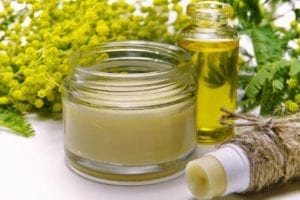
Sun exposure after using benzoyl, peroxide, Accutane, Retin-A, Tazorac, or Differin can make the skin peel which may provide temporary relief but will eventually lead to more breakouts as the dead skin blocks the pores.
Oily skin needs to be properly cared for in order to prevent acne breakouts. Oil glands can have too much sebum production which can cause acne and irritate hair follicles which could, in turn, cause painful cysts.
Using the wrong acne care can make your skin worse. You can see a dermatologist and they will provide medical advice based on peer reviewed studies and may even recommend skin products based on market research that may reduce your acne vulgaris. They may even tell you to get a good night’s sleep whilst practicing deep breathing.
Laundry Detergent
Laundry detergent can dry out your skin and can also irritate your skin.
Likewise, essential oils based on menthol will actually kill the uppermost layer of your skin and cause issues later on as a cosmetic dermatologist will tell you.
Any treatment or product that leaves a stinging or tingly feeling on the skin is actually killing cells in the epidermis, which ultimately leads to more clogged pores and breakouts. As long as you take proper care of your oily skin and keep up with its natural oil production, you can prevent future stress acne breakouts.
People with dry skin tend to experience breakouts when their skin is exposed to irritants that sensitize the pores and cause inflammation.
The pores in dry skin tend to be smaller as they produce less oil and are therefore less likely to be clogged by dead skin, excess oils, or surface acne bacteria.
The walls of dry skin’s pores are also closer in contact with nutrient-producing blood vessels and the immune system.
Breakouts in dry skin may not be caused as easily as those on oily skin because of these elements and they tend to form small, red pimples.
The redness in these pimples is a sign that the skin is attempting to isolate the irritant to prevent further issues. However, this isolation can also trap bacteria and cause more acne breakouts at the same time.
The most immediate cause of breakouts on dry skin is irritant chemicals, most of which can be found in acne-care products. It takes about 46% alcohol to kill the bacteria that causes breakouts, but unfortunately, this level also damages the skin further.
People with dry skin need to take extra care when trying new regimes and ensure that they stick to gentle cleansers made specifically for sensitive skin, as these are less likely to include irritant alcohol or chemicals that will only make their skin worse.
Taking The Stress Out Of Acne
There are so many safe and effective acne treatments available no matter what your skin type is or the health of your body. Be careful of irritating components in these products that can cause more stress than they’ll solve, like chemicals or high-level alcohol.
Stick to gentle yet effective treatments like those available from Exposed Skin Care for the best results.
Healthy diet
A healthy diet can help with cystic acne, skin conditions, managing stress acne or stress related acne breakouts, or even just regular acne.
A balanced diet
This can help relieve the stress on the body due to hormonal changes and even help hormones stimulate healthy levels, this, in turn, may even help with psychological stress.
It has been proven that taking control of your diet can be a major impact on reducing psychological stress. When you are feeling stressed sometimes it could be due to not feeling like you have control of much going on around you. So it can help to take control of your diet.
Dead skin cells
Doing plenty of cleansing and washing twice a day can help to keep the openings on your skin from filling up. Also, a shower twice a day could help relieve stress acne by helping you to relax, whilst the steam can make the openings in your skin even wider and more porous for using cleanser and moisturizers later on.
Skincare routine
A healthy skincare routine can often be made up of spot treatments so you don’t get more pimples. Using things like benzoyl peroxide, salicylic acid, hyaluronic acid, and other certain medications can help stop stress from making your acne worse.
Having a healthy routine alongside a good night’s sleep has proven from related stories that you can actually avoid having an acne breakout altogether. Meaning you don’t have to deal with a pimple and the wound healing that comes with it. A healthy routine also reduces red bumps and redness altogether meaning your immune system will not have to be so active and scarring will not have to be a worry of yours.
The most important thing is that when you are stressed, you practice deep breathing as stress impacts the health of your whole body and you would not want to cause a chronic problem. Your health is so important, it should never take second place in your life. Taking a legitimate interest in your health and skincare will reduce stress acne and could even help with other skin conditions.

